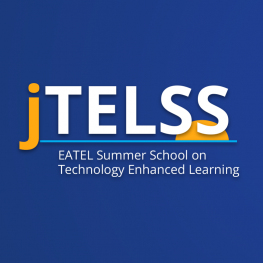Speakers
Tornike Giorgashvili
Goethe University Frankfurt, GermanyIoana Jivet
FernUniversität in Hagen, GermanyHendrik Drachsler
Leibniz Institute for Research and Information in Education - DIPF, GermanyStart
17/05/2024 - 14:00
End
17/05/2024 - 15:30
Closing the Feedback Loop with Learning Analytics: Personalized, Reflective and Data-Driven Learning
Friday 17/05 14:00-15:30h
Workshop Space A
Needs Analysis
Effective feedback is critical to student success in higher education. However, feedback is often neglected due to the high workload required from the teachers to address students individually, leading to ‘feedback poverty’, especially in large courses. Our workshop introduces “Learning Dashboard Plus” (LDP), a Moodle tool with a design grounded in existing feedback theories. The tool enables teachers to efficiently design scalable and personalised feedback with little effort, while also optimising feedback processes and improving the learning experience by encouraging student self-reflection on the received feedback. Teachers can also collect input from students about the feedback they just received, closing thus the feedback loop. The workshop aims to strengthen the feedback culture in higher education and showcase a successful learning analytics tool that we are currently developing and using at the Goethe University.
Learning Objectives
At the end of the workshop, participants will:
- be aware of the importance of giving students meaningful feedback, e.g. on their assignments or learning behaviour, and the role of self-reflection.
- understand how feedback influences students’ learning behaviour and performance.
- be able to design effective feedback following existing feedback models, e.g., Hattie and Timperley’s feedback model.
- understand how to design learning analytics tools for delivering effective feedback in large courses.
- be empowered to use LDP effectively in their teaching contexts to enhance the learning experience in online environments.
- learn how feedback tools can be used as research tools to analyse students’ perceptions and self-reflection and to continuously improve feedback practices.
Pre-activities
Basic knowledge of the use of learning management systems, especially Moodle, is required for participation in the workshop. Participants should have a basic understanding of teaching methods and feedback processes in higher education. Experience in dealing with large courses and the associated challenges is an advantage, but not essential. Technical knowledge of data analysis is helpful (but not necessary) as the workshop will include the use of learning analytics tools. Openness to new technologies and an interest in improving the feedback culture in higher education are essential prerequisites. A willingness to engage with the challenges and opportunities of feedback in online learning environments is also important.
Session Description
This workshop introduces an innovative Moodle plugin that helps teachers to design feedback for large courses in higher education, while also providing insights into the research opportunities that arise from analysing feedback processes. The tool enables the configuration of personalised feedback messages and the creation of a feedback dashboard for students. It prompts students to reflect on the feedback they receive and allows both teachers and researchers to analyse the impact of the feedback. The workshop demonstrates how the plugin can be integrated into Moodle courses. Participants will learn how to design feedback and feedback tools efficiently and effectively and how to analyse student interaction with feedback. The workshop is relevant for both teachers and researchers in the field of higher education and learning analytics. At the end of the workshop, a small evaluation will be carried out to improve the user-friendliness of the tool and to collect ideas for optimisation.



